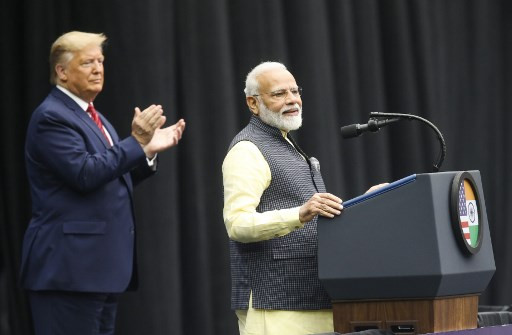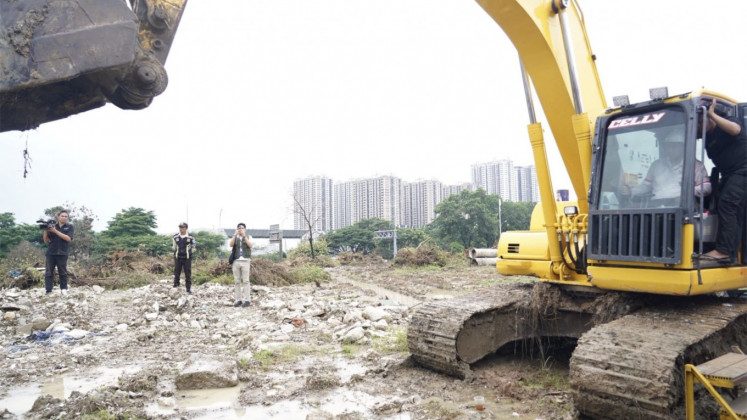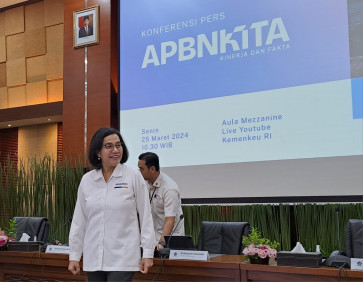Popular Reads
Top Results
Can't find what you're looking for?
View all search resultsPopular Reads
Top Results
Can't find what you're looking for?
View all search resultsGovt to pursue taxes from ‘shadow economy’, Sri Mulyani says
The finance minister has announced a bold plan to target the shadow economy as a new source of tax revenue, particularly as the government looks to generate more funds to finance its ambitious and costly priority programs, including the free meals program.
Change text size
Gift Premium Articles
to Anyone
F
inance Minister Sri Mulyani Indrawati says the government is aiming to tap into potential tax revenue from the so-called shadow economy, also called the underground economy, referring to informal and illegal economic activities that flaunt taxation and reporting rules.
During a press conference on Thursday, the minister explained that the underground economy involved practices to evade taxation and nontax state revenue (PNBP), such as transfer pricing and underreporting.
She added that online gambling, which the government has vowed to eradicate, met the definition of an illegal economic activity.
“Mapping illegal activities is different from the underground economy. The underground economy avoids tax, so mapping [it] will be different. This is currently being handled by Third Deputy Finance Minister Anggito [Abimanyu] and the tax, customs and PNBP team,” Sri Mulyani said on Thursday, as quoted by Antara.
Read also: Govt maintains revenue optimism in 2025 by expanding, intensifying policies
Tax avoidance in the crude palm oil (CPO) industry was one type of underground economy, she continued, and generally involved manipulating data on plantation areas, improper reporting and transfer pricing.
Meanwhile, street vendors and small groceries would classify as informal economic activities.


















